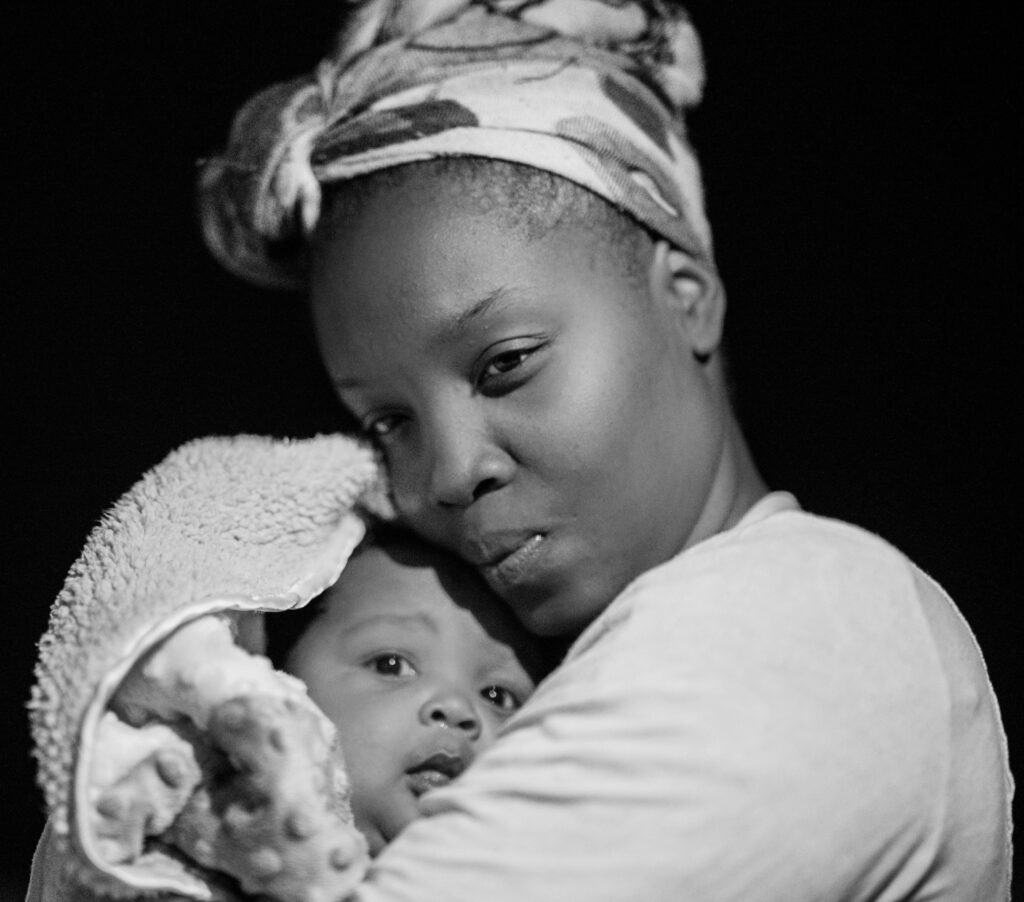When to Seek Help for Postpartum Anxiety and How to Do It
July 23, 2024
Welcoming a new baby into the world is an unparalleled experience, filled with joy, love, and, for many, an overwhelming sense of responsibility. While some level of overwhelm is certainly to be expected, some new mothers encounter feelings of anxiety that are intense and persistent. Today in this blog post, I want to shed light on postpartum anxiety in case you or someone you love is suffering today. I understand the courage it takes to reach out, and I want to support you every step of the way.
What Is Postpartum Anxiety?
Postpartum anxiety refers to a range of anxiety disorders that can occur after childbirth, including generalized anxiety disorder (GAD), panic disorder, and postpartum obsessive-compulsive disorder (OCD). While it’s normal to worry about your newborn’s well-being, postpartum anxiety involves excessive fears that interfere with daily life.
Common Symptoms of Postpartum Anxiety
The signs of postpartum anxiety can vary but commonly include:
- Persistent worry or fear that something bad will happen to the baby.
- Difficulty sleeping, even when the baby is asleep.
- Racing thoughts and inability to relax.
- Physical symptoms such as rapid heartbeat, dizziness, or nausea.
- Avoidance of certain activities or places due to fear.
If you’re wondering if your postpartum anxiety can be something more, read this post where I share 4 mom anxiety symptoms that can often indicate OCD. It’s natural to have concerns as a new parent, but if these worries are consuming your thoughts and affecting your ability to function, it’s time to seek support (which can look different for everyone so let’s get into it).

Why It’s So Important to Fight Back Against Postpartum Anxiety
Untreated postpartum anxiety can have a significant impact on both the mother and the entire family. It can affect bonding with the baby, strain relationships, and make daily tasks feel impossible. Seeking help is crucial not only for your well-being but also for your family’s overall health and harmony.
Unfortunately, and this truly breaks my heart, many mothers suffer in silence due to fear of judgment or misunderstanding about their condition. But remember, by reaching out, you break the stigma and pave the way for others to seek the help they need. Postpartum anxiety is more common than statistics suggest, as many cases go unreported.
Postpartum Anxiety and Postpartum OCD is More Common Than You Think!
While official statistics often indicate that postpartum OCD affects only 3% of mothers, and postpartum anxiety around 10%, more and more research shows that these figures significantly underestimate how common it is.
The reality is that many new moms are struggling with these challenges in silence. One major reason for this underreporting is that we simply don’t ask enough. When healthcare providers inquire about postpartum mental health, the questions often lack the depth needed to uncover conditions like OCD. Instead, a majority of screening is looking for postpartum depression. Moreover, many mothers feel a strong sense of fear and shame in admitting their struggles, worried about being judged or misunderstood.
Specifically impacting Postpartum OCD, another issue we face in recognizing how common it is is a widespread misunderstanding of what OCD can look like. Many think OCD is solely about excessive hand washing, a preoccupation with germs, or an obsession with perfectionism. However, it can also manifest as intrusive, scary thoughts about harm coming to their baby—thoughts that are distressing but not often discussed. Because of this narrow perception, many mothers may deny experiencing OCD when, in fact, they are battling it daily.
Research has shown that up to 100% of new parents, when asked anonymously, report experiencing unwanted harmful thoughts after having a baby. These findings highlight how the commonly cited statistics fail to capture the full scope of postpartum anxiety and OCD.
As a result, many mothers feel isolated, thinking, “It can’t possibly be me,” because they believe such feelings are rare. By broadening our understanding and encouraging open, honest conversations, my hope here is that we can better support all mothers navigating these challenges.
How to Seek Support for Postpartum Anxiety
Postpartum anxiety doesn’t always mean therapy. Your healthcare provider can offer professional advice, screen for postpartum anxiety, and refer you to a specialist if needed. Don’t hesitate to discuss any symptoms you’re experiencing, no matter how insignificant they may seem.
If you want to tackle this head-on and don’t feel comfortable reaching out to a professional (which I fully understand due to the incredibly pervasive and unfortunate stigma around mental health), I go through evidence-backed ways of treating OCD and Anxiety instead my OCD and Anxiety Recovery Blueprint here.
Another option is to prioritize connecting with other mothers who are going through similar experiences. This can be incredibly empowering. Support groups offer a safe space to share your feelings and receive encouragement from those who understand what you’re going through. YOU ARE NOT ALONE.
Overcoming Common Barriers to Seeking Help and Normalizing Help-Seeking Behavior
I’ve already touched on this a bit, but just because I know it can be HUGE to admit you need help, I want to share a little bit about why it’s so important to acknowledge barriers around mothers getting help for postpartum anxiety. It’s natural to worry about what others might think, but it’s crucial to remember that seeking help is a sign of strength, not weakness. Your well-being is paramount, and those who care about you will support your decision.
It’s time to change the narrative around mental health. By normalizing discussions about postpartum anxiety, we can create a more supportive environment for new mothers. Sharing stories and experiences can help break down barriers and encourage others to seek help. Healthcare professionals need to ask more questions, and better educate themselves on treating anxiety and OCD.
If you’re a medical professional, consider taking my OCD and Anxiety Recovery Blueprint, where I walk through evidence-backed strategies and support for treating anxiety and OCD (from the lens of someone who has struggled personally, and has been helping others for the last 15 years).

Your Journey Toward Healing
If you’re struggling with postpartum anxiety, the journey toward healing begins with acknowledging your feelings and taking the first step toward seeking help. It’s a courageous decision that can lead to profound positive changes in your life.
In case nobody has told you this lately, taking care of yourself is not a luxury; it’s a necessity. Making it a priority to get help with postpartum anxiety is one of the most important things you can do for yourself AND your baby. Prioritize self-care by making time for activities that bring you joy, relaxation, and a sense of accomplishment.
Changing the Narrative Around Postpartum Anxiety
Postpartum anxiety is challenging, but it doesn’t have to be unmanageable. By recognizing the signs, understanding the importance of seeking help, and knowing how to reach out, you can take control of your mental health and well-being. Remember, you are not alone in this journey. There are countless resources and supportive individuals ready to assist you. I share 5 strategies to help overcome anxiety in this free masterclass here if you’re looking for an easy place to start!
most popular episodes
Love my podcast?
Episode 112: Postpartum OCD and False Memory OCD
Imagine how in depth I can go in an online course. Instantly downloadable and game-changing. Take the next step towards an amazing life.